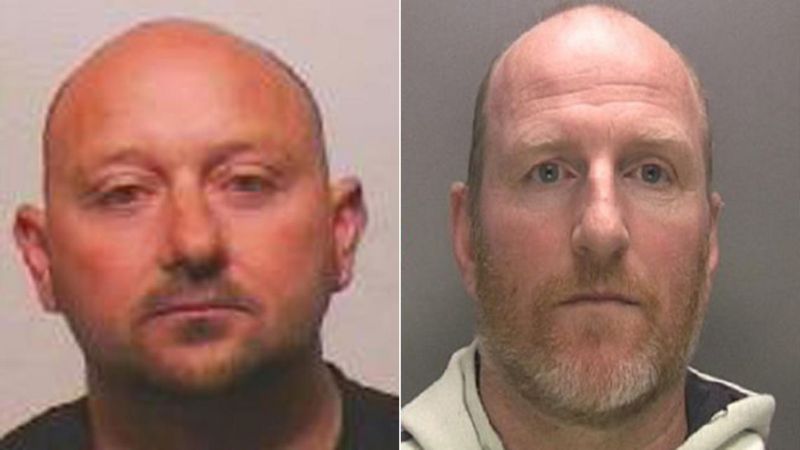Hundreds of police accused of sexual exploitation
BBC
More than 300 police officers have been accused of using their position to sexually exploit people, including victims of crime, a report has said.
Her Majesty’s Inspectorate of Constabulary said abuse of authority for sexual gain was now the “most serious” form of corruption facing police in England and Wales.
The watchdog’s figures were gathered over two years to the end of March.
The National Police Chiefs’ Council described the problem as a “disease”.
It acknowledged that more needed to be done to “root it out and inoculate policing for the future”.
Chief Constable Stephen Watson, the NPCC’s lead for counter-corruption, said: “It is the most serious form of corruption and it can never be justified or condoned.”
Police and sexual exploitation
England and Wales (two years to March)
436
reported allegations of abuse of authority for sexual gain
- 306 police officers accused
- 28 Police Community Support Officers and police staff also accused
- 40% of allegations involved victims of crime
HMIC said its police “legitimacy” inspection was positive overall, with high satisfaction among victims at how they were treated.
The watchdog was asked to investigate the extent of the problem earlier this year, by the then Home Secretary Theresa May.
It found that 306 officers, 20 PCSOs and eight police staff were involved in 436 reported allegations.
The data also showed all but one constabulary had received at least one allegation, and that almost 40% of accusations involved victims of domestic abuse.
Other people who were allegedly exploited were thought to include arrested suspects and people with drug or alcohol problems.
The report also found:
- Fewer than half (48%) of the 436 reported allegations had been referred to the Independent Police Complaints Commission
- There was an “apparent disconnect” between the numbers of alleged cases and any subsequent staff dismissals
- Officers did not have a “sufficiently clear understanding” of boundaries around establishing or pursuing relationships with vulnerable people
- Some counter-corruption units did not have the ability or capacity to seek information about potential cases
- Almost half of forces inspected were unable to audit or monitor the use of all IT systems, which limited the ability to spot any staff accessing databases to identify vulnerable victims
HM Inspector Mike Cunningham, who led the review, said the problem of sexual exploitation could be “more serious” than the reported numbers and forces needed to become “far more proactive in rooting out” such corruption.
Mr Cunningham told BBC Radio 4’s Today programme: “Make no mistake about it, the sexual exploitation of vulnerable women is corruption. It is using authority for personal gain, which is a definition of corruption.
“It is the most serious corruption problem in the sense that it is the ultimate betrayal of trust, where the guardian becomes the abuser. That is what we are seeing in these cases, and we’re seeing too many.
“The allegations that we collected across the country are not closed allegations, they’re not confirmed or finalised allegations but nevertheless they are allegations.”
Police officers convicted of sex crimes include:
- Northumbria Police constable Stephen Mitchell was jailed for life with a minimum of seven-and-a-half years in 2011 for raping and sexually assaulting vulnerable women he met while on duty in Newcastle
- West Midlands Police constable Steven Walters, 48, was jailed for four years in October for assaulting a female passenger in his patrol car and groping another woman in her home
- Metropolitan Police constable James Evans was jailed for four years in August after having sex with a 15-year-old rape victim he met on the dating app Tinder
- Met Police detective constable Clifford Earl was jailed for 12 months in 2013 after he sexually assaulted two women in their homes
Mr Cunningham said people such as former Northumbria officer Stephen Mitchell, who is serving two life sentences for serious sexual offences including rape, were clearly predators.
Others, he said, were opportunistic and found themselves in circumstances where they could abuse their power and authority.
Det Supt Ray Marley, of the College of Policing, said the report “highlighted a number of unacceptable cases which have a significant impact on the victims and public confidence”.
 NORTHUMBRIA POLICE/WEST MIDLANDS POLICE – Stephen Mitchell (left) and Steven Walters were jailed for sex crimes
NORTHUMBRIA POLICE/WEST MIDLANDS POLICE – Stephen Mitchell (left) and Steven Walters were jailed for sex crimes_
Home Secretary Amber Rudd described the report as “shocking”.
“It undermines justice and public confidence and there is no place in the police for anyone guilty of this sort of abuse,” she said.
She said she had met the College of Policing and the NPCC to discuss action needed to tackle the problem.
“The vast majority of police officers do their jobs with integrity and I know they will share my determination to ensure the most vulnerable in our society are given the protection they deserve,” she said.
In the wake of the report, IPCC chairwoman Dame Anne Owers has written to chief constables in England and Wales urging them to ensure that all cases involving abuse of authority for sexual gain are referred to the commission.
The report assessed whether officers were seen by the public consistently to behave fairly, ethically and within the law.
Two forces – Derbyshire and Kent – were graded as outstanding, 36 as good, and five – Cleveland, Dyfed-Powys, Gloucestershire, North Wales and South Yorkshire – as requiring improvement. No forces were graded as inadequate.
There are a total of 200,000 police officers and staff in England and Wales.
___
Hundreds of police accused of sexual exploitation – BBC News
